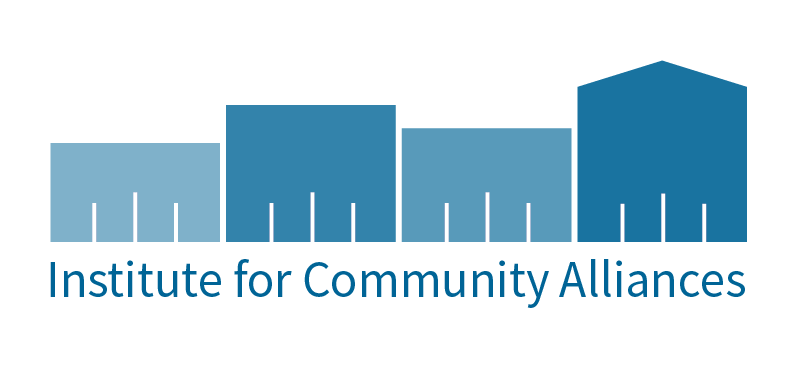CASE STUDY
____________________
Homeless No More – A “Real-time” Data Strategy
Des Moines, Iowa was one of the first cities to sign on to First Lady Michelle Obama’s challenge to U.S. mayors to end Veteran homelessness. As the Homeless Management Information System (HMIS) Lead for Des Moines since 2001, the Institute for Community Alliances was naturally positioned to organize and lead the initiative.
““...(T)hank you for answering the First Lady’s call to action through the Mayor’s Challenge to End Veteran Homelessness. We are confident that the infrastructure and systems (the community team) have built will ensure that any Veteran experiencing a housing crisis in Des Moines or Polk County will get the support they need to quickly obtain a permanent home.””
Recognizing the Need
On a single night in January 2012, there were 62,619 Veterans experiencing homelessness in the United States.
In the summer of 2013, recognizing that men and women who have made extraordinary sacrifices in service to our nation through their service in the U.S. armed services should not experience homelessness, and that ending homelessness for Veterans and their families is critical to the cities in which they live, The United States Conference of Mayors renewed its resolve to prevent and end homelessness among Veterans by 2015.
In late 2014, First Lady Michelle Obama issued her own challenge to members of the U.S. Conference of Mayors to end Veteran homelessness in their cities.
Mayor Frank Cownie of Des Moines, Iowa, was one of the first Mayors to sign on to the Challenge.
Homeless Veterans in Polk County
Meeting the Challenge with Data-Driven Strategies
And with this commitment, especially in response to a Challenge that came directly from the White House, there were so many questions… Where do we start? What should we measure? How should we organize the work? How will we know if we have been successful? Is our city up to meeting this Challenge?
As the Homeless Management Information System (HMIS) Lead for Des Moines for nearly fifteen years, ICA was a respected community partner well-positioned to lead the initiative to end local Veteran homelessness.
Following priorities identified in Opening Doors: Federal Strategic Plan to Prevent and End Homelessness, ICA soon was leading efforts to develop and coordinate a highly collaborative and experienced team of providers, advocates, researchers, data analysts, and technical advisors.
The Institute helped the team set goals and measure progress; analyzed, shared and guided strategic use of data; and facilitated evidenced-informed strategies designed to quickly return Veterans and their families to housing.
How it worked
Over the course of 14 months, the Challenge team met twice a month with sessions often lasting three hours or more. Core to the work was an up-to-date list of all known Veterans experiencing homelessness in Des Moines, as generated through the homeless management system. The HMIS reports helped provide a fundamental understanding of the individual circumstances of Veterans being served, while also measuring their progress and success.
At each meeting, HMIS data was broken out from the date of the original count of Veterans experiencing homelessness and since the last session. The team was able to quickly assess how many Veterans had exited homelessness, how many had newly entered the system, and if any had returned. The data also provided information about how long the Veteran had been homeless and the length of time it took to place him or her into housing.
The status of each Veteran was discussed and a service plan and follow up actions set in place. At each meeting that followed, the updated list was reviewed and the process continued.
This strategy and commitment, combined with substantial housing assistance and vouchers from the Veterans Administration, brought the collective resources of the community to bear in ending homelessness among Veterans in Des Moines/Polk County, Iowa. In total, 388 Veterans and their families were placed into permanent housing.
On February 25, 2016, Mayor Frank Cownie received confirmation that the city of Des Moines and Polk County “have effectively ended homelessness among Veterans.” At that time, the community was one of just eighteen communities or states to have achieved this goal.
Mayor Cownie, ICA, and Other Community Partners announce progress toward ending veteran homelessness.
Photo Credit: HUD Great Plains Field Office (via twitter)
What next?
City of Des Moines and Polk County community leaders and staff members, the US Interagency Council on Homelessness, US Department of Housing and Urban Development, the U.S., Department of Veterans Affairs, Central Iowa V.A., and countless service providers throughout Polk County remain committed to end homelessness among Veterans. The article linked below includes comments from Julie Eberbach, Iowa Director for the Institute for Community Alliances and leader of the local homeless Veterans’ response team for the U.S. Mayors Challenge to End Veteran homelessness.
Read: The Des Moines Register on Ending Veterans Homelessness in Des Moines
It has been suggested that a logical next step in addressing homelessness in Iowa is to quantify the resources and cost that would be required to replicate the project for other sub-populations of persons who are experiencing homelessness. The successes demonstrated in Des Moines certainly provide a template and starting point by which to begin this process.
Next Up
____________________
Counting on (and in) Vermont
To remain eligible and competitive for federal funds that provide critical support to homeless programs throughout Vermont, the Burlington/Chittenden County and Balance of State Continua looked to the Institute for Community Alliances to meet increasing data collection, quality and reporting standards.




